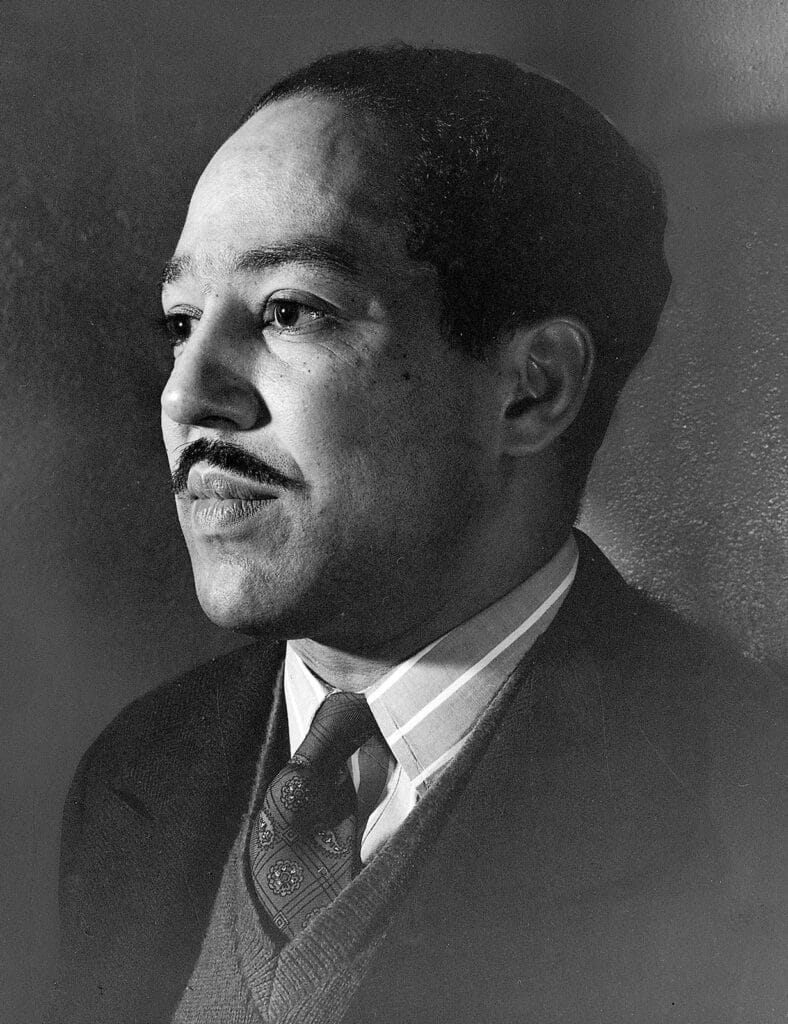Langston Hughes
Langston Hughes stands as an emblematic figure in American literature, notably as a prominent voice in the Harlem Renaissance. His work deeply engages with the African American experience, articulating its complexities through poetry, plays, novels, and newspaper columns. Renowned for his innovative incorporation of jazz rhythms into poetry, Hughes vividly depicted the life of working-class Black Americans, avoiding both idealization and despair.

Through the character Jesse B. Semple, or “Simple,” Hughes provided insightful, relatable narratives about everyday challenges faced by Black Americans in Harlem. These stories, rich in humor and poignancy, tackled significant social issues, echoing Hughes’ engagement with civil rights and social justice themes.
Hughes’ literary journey was marked by diverse experiences and travels, influencing his profound and varied body of work. His first poetry collection, “The Weary Blues,” and subsequent works like “Not Without Laughter” and “Mulatto: A Tragedy of the Deep South,” explored themes of race relations, identity, and dignity, leaving a lasting impact on future generations.
Despite the scrutiny during the McCarthy era due to his connections with communism and the Soviet Union, Hughes’ legacy remains influential. His Harlem home has been recognized as a landmark, and his contributions are celebrated in cultural institutions, underscoring his enduring significance in American culture and literature.
References:
- Britannica’s overview of Langston Hughes.
- Insight into Hughes’ character “Simple” from the Poetry Foundation.
- Overview of Hughes’ life and work from HISTORY.
- Information about Hughes’ legacy from the Academy of American Poets.
QUESTIONS FOR DISCUSSION
- How did Langston Hughes’ experiences as a part of the Harlem Renaissance shape his literary themes and style, particularly in his use of jazz rhythms in poetry?
- Hughes created the character Jesse B. Semple, or “Simple,” to address complex racial and social issues. How does Simple’s character serve as a lens to explore and critique the societal norms of Hughes’ time?
- How do Hughes’ travels and diverse job experiences influence the subjects and settings of his literary works?
- In what ways did Hughes’ work address the concept of the American Dream, particularly in the context of the African American experience during the early to mid-20th century?
- Hughes’ poetry is often described as ‘simple’ yet profound. Discuss how his writing style contributes to the accessibility and impact of his themes on race, culture, and identity.
- Considering Hughes’ engagement with social issues and civil rights, how did his political views and activism influence his literary output?
- Hughes used his column in the Chicago Defender to discuss racial discrimination, among other topics. How did this platform allow Hughes to reach and influence a broader audience?
- Explore the significance of Hughes’ “Simple” stories being published in prominent newspapers and their role in bringing attention to the everyday lives of Black Americans.
- How did Hughes’ perspective on racial identity and pride manifest in his work, particularly against the backdrop of the civil rights movement?
- Discuss the legacy of Langston Hughes in American literature and culture. How has his work continued to influence writers and artists in the years following his death?
© 2024, wcadmin. All rights reserved, Writers Critique, LLC Unless otherwise noted, all posts remain copyright of their respective authors.




